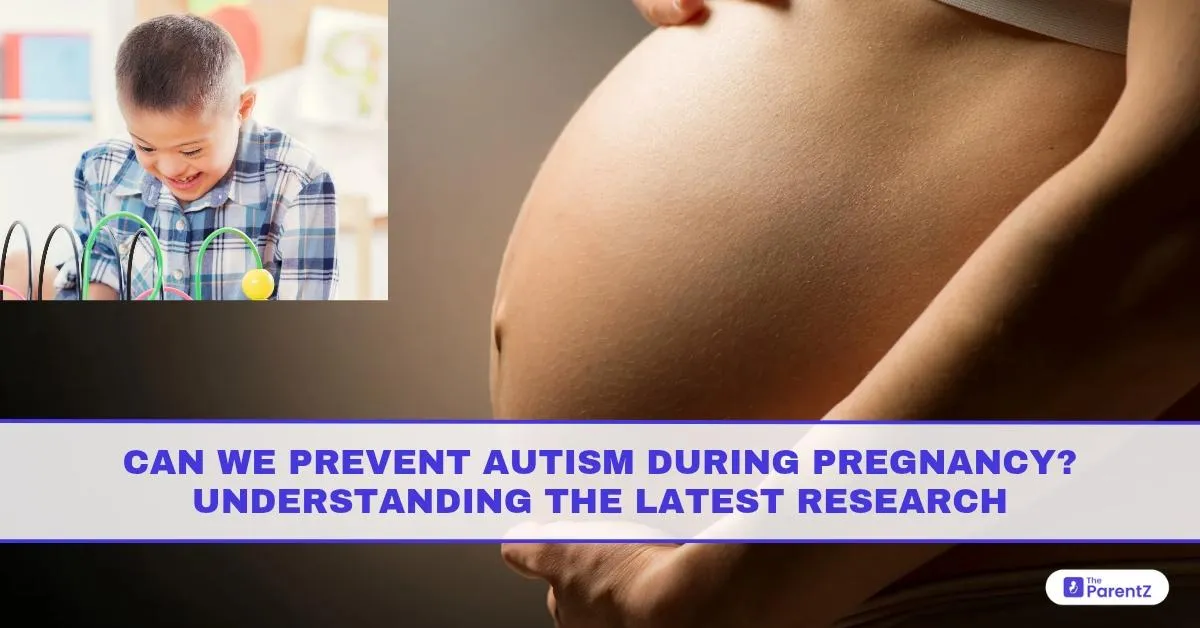“An ounce of prevention is worth a pound of cure.” – Benjamin Franklin
Autism Spectrum Disorder (ASD) is a complex neurodevelopmental condition that affects communication, social interaction, and behavior. It typically appears in early childhood, often before the age of three, and varies widely in severity and presentation. Understandably, many parents, especially expectant mothers, wonder: Is there anything I can do during pregnancy to reduce the risk of autism in my child?
While the causes of autism are multifactorial and not entirely understood, growing research points to a mix of genetic predispositions and environmental exposures that can occur during pregnancy. Although ASD cannot currently be “prevented” in the traditional sense, certain maternal health practices and precautions may help reduce associated risks.
Understanding Autism: A Multifactorial Puzzle
Autism is not caused by one single factor. Instead, it results from a combination of:
- Genetic influences (strongly heritable in some cases)
- Prenatal exposures
- Postnatal environmental factors
According to the Centers for Disease Control and Prevention (CDC), ASD affects about 1 in 36 children in the United States as of recent estimates. It is more commonly diagnosed in boys than in girls.
While genetics plays a significant role, estimated to account for up to 80% of ASD risk, researchers continue to study how maternal health, infections, medications, and environmental exposures during pregnancy can influence fetal brain development
What the Latest Research Says
1. Maternal Health and Inflammation
Chronic maternal inflammation during pregnancy has been linked to neurodevelopmental issues in children. A study published in Nature Neuroscience (2016) showed that elevated levels of inflammatory markers like interleukin-6 (IL-6) in the mother’s bloodstream were associated with altered brain connectivity in the fetus.
Conditions that may increase inflammatory risk include:
- Untreated infections
- Obesity
- Gestational diabetes
- Autoimmune disorders
What parents can do:
Seek early treatment for infections, manage chronic health conditions, and maintain a healthy weight before and during pregnancy.
2. Prenatal Nutrition and Folate
Folic acid (vitamin B9) is crucial in the early stages of pregnancy to prevent neural tube defects, but it may also play a role in reducing autism risk.
A large Norwegian study published in JAMA (2013) found that mothers who took folic acid supplements around the time of conception had a lower risk of having a child with autism. Folate is believed to support proper gene expression and fetal neural development.
What parents can do:
Begin folic acid supplementation (400–800 mcg daily) before conception and continue during early pregnancy as recommended by your doctor.
3. Medication Use During Pregnancy
Certain medications, especially when taken during the first trimester, may influence autism risk. For example:
- Valproic acid (used for epilepsy) is linked with a higher risk of ASD.
- Selective serotonin reuptake inhibitors (SSRIs) used for depression have shown mixed results in studies; some suggest a slight increased risk, while others do not.
Importantly, abruptly stopping medications can be dangerous. The decision to continue or stop a medicine must be made jointly by the parent and healthcare provider.
What parents can do:
Always discuss any medications with your obstetrician. Never self-discontinue essential medications without medical guidance.
4. Environmental Toxins and Air Pollution
Exposure to high levels of air pollution, heavy metals (like lead or mercury), and certain pesticides during pregnancy has been associated with an increased risk of ASD in some studies.
A study from the Harvard School of Public Health linked third-trimester exposure to fine particulate matter (PM2.5) with a modestly increased risk of autism.
What parents can do:
- Avoid unnecessary chemical exposure at home.
- Use natural cleaning products and avoid pesticide use indoors.
- Consider using an air purifier in areas with poor air quality.
5. Advanced Parental Age
Older maternal and paternal age has been associated with increased autism risk, possibly due to a greater chance of spontaneous genetic mutations.
While age itself cannot be changed, this information may help families plan more informed and supportive pregnancies, especially when other risk factors are present.
What parents can do:
If conceiving later in life, ensure comprehensive prenatal care and regular monitoring to mitigate any associated risks.
6. Infections During Pregnancy
Certain infections, especially if untreated or accompanied by fever, have been associated with autism. These include:
- Rubella (German measles)
- Cytomegalovirus (CMV)
- Influenza, especially with high maternal fever
A prolonged fever during pregnancy has been linked with developmental risks in some studies.
What parents can do:
- Stay up to date with vaccinations (like MMR and influenza).
- Report and treat fevers or infections promptly.
- Avoid contact with known infectious sources during pregnancy.
Myths vs. Facts
- Myth: Vaccines during pregnancy cause autism. Fact: This has been extensively studied and disproven. Vaccines like Tdap and flu shots are recommended during pregnancy to protect both mother and baby.
- Myth: A poor emotional state or stress causes autism. Fact: While severe chronic stress may affect fetal development, moderate stress is common and not a direct cause of ASD.
- Myth: Eating junk food during pregnancy causes autism. Fact: Poor nutrition can affect brain development, but there is no direct evidence linking fast food intake to autism.
What Can Expectant Parents Do?
While no action guarantees prevention of autism, given its strong genetic components, there are several steps parents can take to promote healthy fetal brain development:
- Begin prenatal care early and attend all appointments
- Take prenatal vitamins, especially folic acid
- Manage chronic conditions and maintain a healthy weight
- Limit exposure to toxins, smoke, and pollutants
- Eat a balanced, nutrient-rich diet
- Get vaccinated and avoid infections
- Avoid alcohol, smoking, and recreational drugs
Conclusion
Autism is a deeply complex condition that cannot be fully prevented. However, a growing body of research suggests that the prenatal environment plays a meaningful role in shaping early brain development. For expectant parents, this means there are proactive choices regarding nutrition, medical care, and environmental safety that may reduce certain risks.
Ultimately, the goal isn’t to eliminate autism but to support optimal development in every child. Early intervention, regardless of diagnosis, can make a profound difference in outcomes. By focusing on a healthy pregnancy and informed decisions, parents give their child the best possible start.
“The journey of nurturing a child’s mind begins long before the first cry, it starts with informed, compassionate care during pregnancy.”





Be the first one to comment on this story.